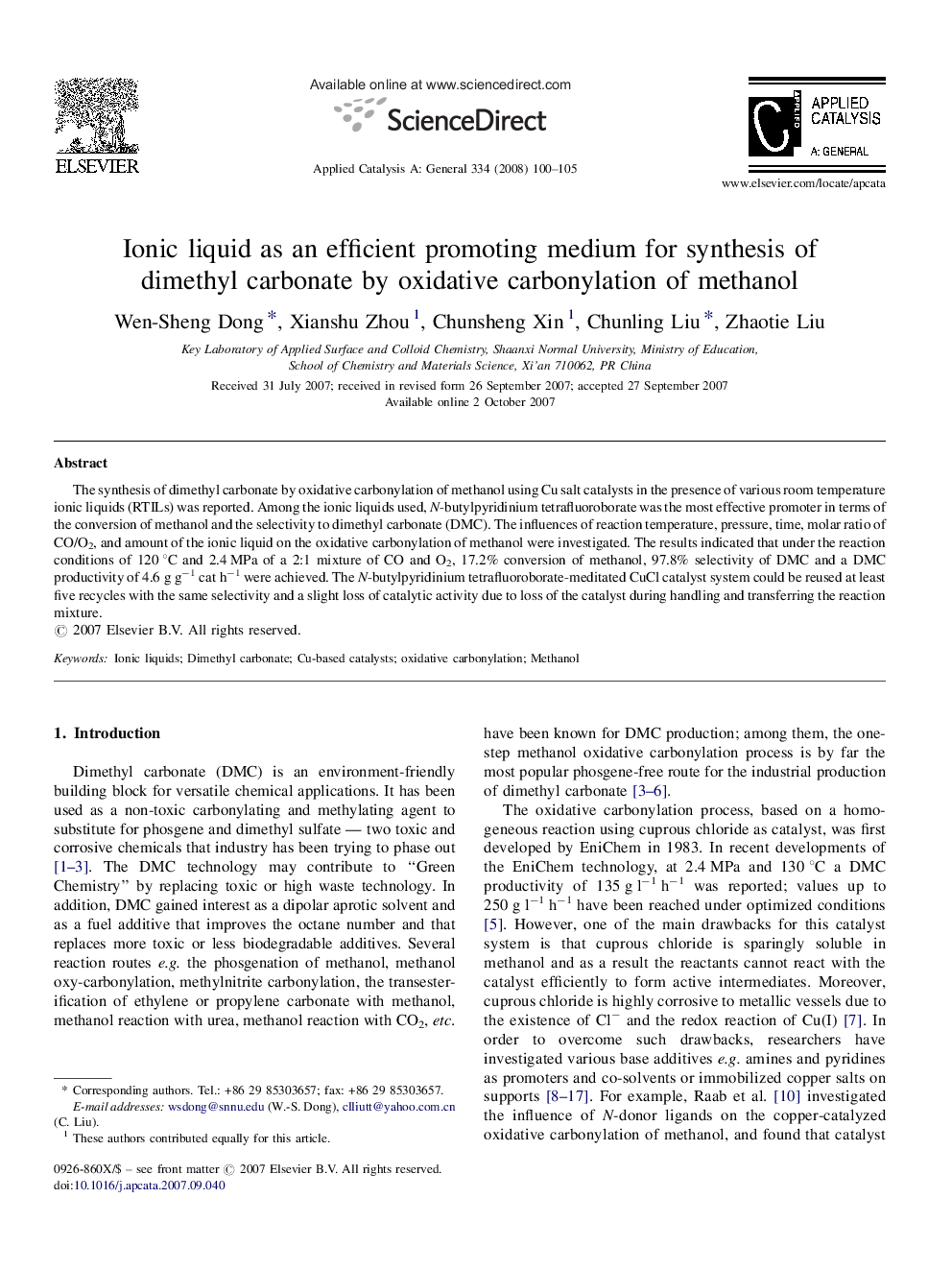| Article ID | Journal | Published Year | Pages | File Type |
|---|---|---|---|---|
| 43196 | Applied Catalysis A: General | 2008 | 6 Pages |
The synthesis of dimethyl carbonate by oxidative carbonylation of methanol using Cu salt catalysts in the presence of various room temperature ionic liquids (RTILs) was reported. Among the ionic liquids used, N-butylpyridinium tetrafluoroborate was the most effective promoter in terms of the conversion of methanol and the selectivity to dimethyl carbonate (DMC). The influences of reaction temperature, pressure, time, molar ratio of CO/O2, and amount of the ionic liquid on the oxidative carbonylation of methanol were investigated. The results indicated that under the reaction conditions of 120 °C and 2.4 MPa of a 2:1 mixture of CO and O2, 17.2% conversion of methanol, 97.8% selectivity of DMC and a DMC productivity of 4.6 g g−1 cat h−1 were achieved. The N-butylpyridinium tetrafluoroborate-meditated CuCl catalyst system could be reused at least five recycles with the same selectivity and a slight loss of catalytic activity due to loss of the catalyst during handling and transferring the reaction mixture.
Graphical abstractThe N-butylpyridinium tetrafluoroborate-meditated CuCl catalyst system could be a very effective catalyst system for oxidative carbonylation of methanol to give dimethyl carbonate. The catalyst system could be reused at least five recycles with the same selectivity and only a slight loss of catalytic activity due to loss of the catalyst during handling and transferring the reaction mixture. Figure optionsDownload full-size imageDownload as PowerPoint slide
